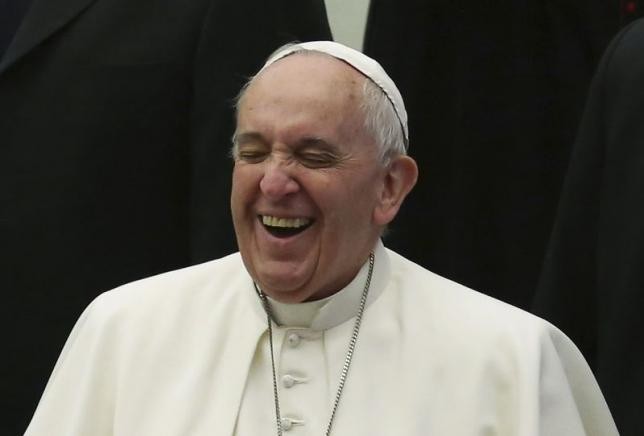Following Pope Francis's greeting to the Chinese people for the Lunar New Year, the Chinese government on Wednesday expressed its wish for the Vatican to be more flexible and pragmatic regarding their bilateral ties, as reported by the Global Times.
"China is sincere about improving relations with the Vatican and has made consistent efforts. . . . We also hope the Vatican takes a flexible and pragmatic attitude and create conditions to improve bilateral relations," said Lu Kang, spokesperson for the Chinese foreign ministry, at a Wednesday press briefing.
Pope Francis expressed his wishes and greetings to President Xi Jinping and all Chinese people in anticipation of the Chinese New Year (Feb. 8) during a Tuesday interview with Hong Kong-based Asia Times.
According to a report by The Huffington Post, the interview was recorded in the Vatican last week, while a Chinese delegation was on a visit to the Holy See.
The report also said that China would accept the pontiff's choice of new bishops if they were from a list approved by the Chinese government, as part of a deal "reached between the two sides," citing an article by Italian newspaper Corriere della Sera.
The public has been speculating about a China-Vatican deal regarding bishop consecration ever since Aug. 2015, when Coadjutor Bishop Zhang Yinlin was consecrated at a Catholic church in Anyang, Henen Province.
Zhang was reportedly the first bishop to be recognized by both the Holy See and the Chinese government since 2012, before which the government consecrated some bishops without the Vatican's approval, effectively damaging ties.
"It could become a 'Chinese model' for both sides to explore ways to appoint bishops in China," said Yan Keijia, director of Shanghai Academy of Social Sciences' Institute of Religious Studies.
The "Chinese model" will likely be different from the "Vietnamese model," wherein bishops nominated by both Vatican and Vietnam are selected and approved by the Pope.
China would probably opt for more say in a bilateral cooperation with the Vatican when it comes to bishop ordination, according to Liu Guopeng, an associate research fellow at the Institute of World Religion Studies at the Chinese Academy of Social Sciences.






















